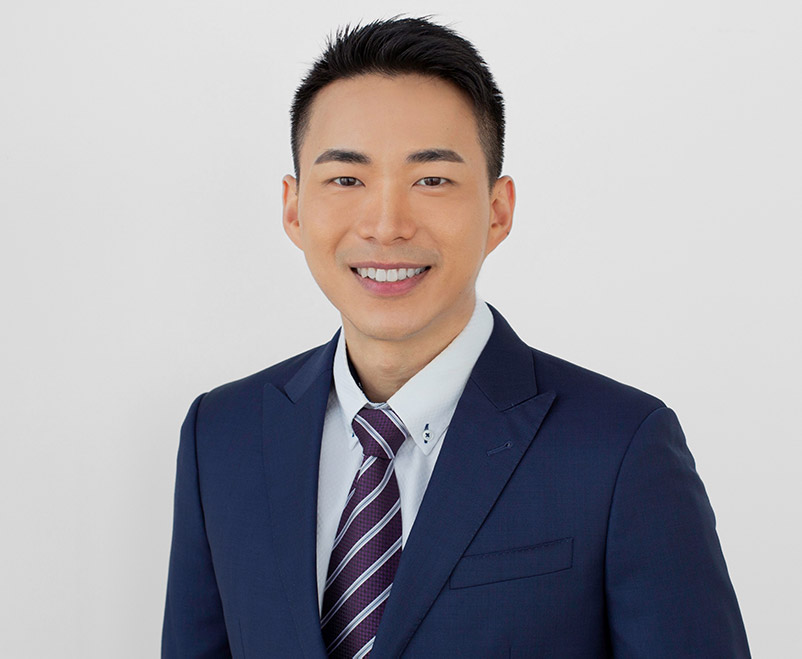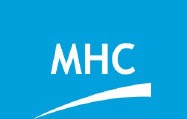
Our ENT Specialist
Dr Alex Tham
MBBS (Singapore), MRCSEd (ENT), MMED (ORL), FAMS (ORL)
Welcome to Dr Alex Tham's ENT Practice
Your Dedicated ENT Clinic in Singapore
Welcome to Dr. Alex Tham's ENT Practice, your trusted destination for ear, nose, and throat care in Singapore.
Led by Dr. Alex Tham, our clinic is committed to providing compassionate care tailored to your needs. Whether you're seeking relief from sinus issues, snoring, or ear-related concerns, our team delivers personalized solutions with medical excellence and innovation. Your well-being is our priority, and we're here to ensure you receive high-quality care in a supportive environment.

Specialized Services

General ENT
At our ENT clinic in Singapore, we provide comprehensive services for adults and children, addressing a wide range of ear, nose, and throat conditions. From routine check-ups to specialized treatments, our experienced team cares for patients of all ages. Trust us to deliver expert care tailored to your family's needs.

Sinus
Our clinic specializes in diagnosing and treating sinus problems, including allergic rhinitis, sinus infections, and nasal polyps. Experience effective solutions and improved quality of life with our advanced treatments. We utilize advanced tools and techniques for precise care.

Snoring
For those seeking relief from snoring issues, our team provides personalized treatment options for chronic snoring and sleep-related concerns. Trust us to help you achieve restful sleep and optimal health. We focus on identifying underlying causes to develop lasting solutions for relief.
FAQ
An ENT (Ear, Nose and Throat) specialist diagnoses and manages disorders involving the ear, nose, throat, and related head and neck structures. These include sinus infections, nasal allergies (sensitive nose), and nasal blockage, as well as hearing and balance problems, tonsil and adenoid issues, voice and swallowing disorders, snoring and sleep apnea. ENT specialists also manage thyroid, salivary gland, and head and neck conditions.
Surgery is usually considered when medications, lifestyle changes, or other non-surgical treatments do not improve symptoms, or when there is a structural problem that needs correction.
Common examples include sinus surgery for chronic sinus infections, septoplasty for a deviated septum, tonsillectomy for recurrent tonsillitis, or thyroid and salivary gland surgery for nodules or cysts.
ENT surgeons also perform procedures to treat snoring and sleep apnea, remove neck lumps, and manage nasal polyps or nasal obstruction that persist despite medical therapy. Your ENT specialist will discuss the most appropriate options and guide you through the decision-making process.
Most ENT surgeries are safe and effective when performed by trained specialists using modern techniques. Many procedures today are minimally invasive, often performed through the nose or ear without any external cuts, leading to faster recovery and less discomfort.
As with any surgery, there are potential risks such as bleeding, infection, scarring, or temporary changes in voice or swallowing. Your ENT surgeon will explain these risks in detail, along with the measures taken to minimise them — including the use of image guidance, fine instruments, and careful post-operative monitoring.
Before surgery, you will usually undergo a pre-operative assessment, which may include blood tests, scans, and a review with the anaesthetist to ensure you are fit for the procedure. You may be advised to fast for several hours before surgery and to adjust or temporarily stop certain medications if needed.
After surgery, you will be monitored in a recovery area or day ward. Most patients go home the same day or after an overnight stay, depending on the type of procedure. Your ENT surgeon will provide detailed instructions on wound or nasal care, pain control, and activity restrictions.
Follow-up visits are scheduled to check healing and remove any dressings, splints, or nasal packs if used. Recovery advice is tailored to each patient to ensure a smooth and safe healing process.
Recovery time varies depending on the type of surgery and your general health. Most patients can resume light activity within a few days, but full recovery may take longer for more complex procedures.
As a general guide:
- Sinus surgery or septoplasty: about 2-4 weeks
- Tonsillectomy: 2–4 weeks
- Thyroid or salivary gland surgery: 2–4 weeks
- Major head and neck surgery: several weeks to months
Your ENT surgeon will give personalised recovery advice, including when you can return to work, exercise, or air travel. Following your post-operative care instructions closely helps ensure optimal healing and results.
You should consider seeing an ENT specialist if you experience any of the following symptoms:
- Persistent blocked nose or sinus infections that do not improve with medication
- Hearing loss, ringing in the ears (tinnitus), or recurrent ear infections
- Ongoing hoarseness, voice changes, or difficulty swallowing
- Loud snoring, choking at night, or symptoms suggesting sleep apnea
- A lump in the neck lasting more than 2–3 weeks
- Dizziness, vertigo, or balance problems
These symptoms may have many possible causes — some minor, others more serious. Early evaluation by an ENT specialist helps identify the underlying problem and ensures timely, appropriate treatment.
Some ENT surgeries — especially those involving the throat, vocal cords, thyroid, or neck — may temporarily affect your voice or swallowing. This is often due to post-operative swelling, mild bruising, or muscle stiffness, and most patients recover fully as healing progresses.
In certain cases, voice therapy or speech exercises may be recommended to help restore normal function more quickly.
Rarely, injury to the nerves that control voice and swallowing (such as the recurrent laryngeal nerve) can occur, which may lead to temporary or, in uncommon cases, permanent changes. Your ENT surgeon will discuss these risks with you before surgery and take careful steps to minimise them through meticulous technique and nerve monitoring when appropriate.
Sinus problems such as chronic sinusitis are usually treated first with medications — including nasal sprays, saline rinses, antihistamines, or antibiotics if an infection is present. Managing underlying allergies and avoiding irritants can also help reduce inflammation and congestion.
If symptoms persist despite medical treatment, your ENT specialist may recommend endoscopic sinus surgery. This is a minimally invasive procedure performed through the nostrils to clear blockages, remove polyps, and improve sinus drainage. It is typically done under general anaesthesia, and most patients can return home the same day.
Advances such as image-guided navigation systems allow for precise, safer, and more comfortable treatment tailored to each patient’s condition.
Not all neck lumps are cancerous — many are due to infections, swollen lymph nodes, or benign growths such as cysts or thyroid nodules. These often resolve on their own or with medication.
However, you should seek prompt ENT evaluation if a lump is painless, firm, enlarging, or persists for more than 2–3 weeks, especially if it is associated with hoarseness, swallowing difficulty, ear pain, blood in saliva or unexplained weight loss.
Your ENT specialist may perform a scan or fine needle biopsy to determine the cause. Early assessment is important, as some neck lumps can be related to thyroid, salivary gland, or head and neck cancers, and early detection offers the best chance for successful treatment.
Head and neck cancers are managed using a multidisciplinary approach, often involving a combination of surgery, radiation therapy, and chemotherapy. The specific treatment plan depends on the type, location, and stage of the cancer.
ENT surgeons play a key role in diagnosing and surgically removing the tumour, as well as performing neck dissection if lymph nodes are affected. When necessary, reconstructive procedures are done to restore appearance and function, allowing patients to speak, swallow, and eat comfortably after surgery.
Your ENT specialist will work closely with oncologists, radiologists, pathologists, and speech therapists to create a personalised care plan. Early detection significantly improves outcomes, so any persistent lump, voice change, or difficulty swallowing should be assessed promptly.
At Dr. Alex Tham's ENT practice, we prioritize your well-being and satisfaction. Here's why patients trust us:

Same day appointments for your convenience

Attentive and conscientious team dedicated to your care

Minimally invasive techniques for optimal outcomes

MOH-compliant transparent pricing for peace of mind
Insurance
We are on the specialists panels of the following Health Networks/Insurance Plans:
Personal Insurance



Corporate Insurance




Asian Healthcare Specialists
@ Mount Alvernia
820 Thomson Road,
#05-03 Mount Alvernia Medical Centre Block A,
Singapore 574623

